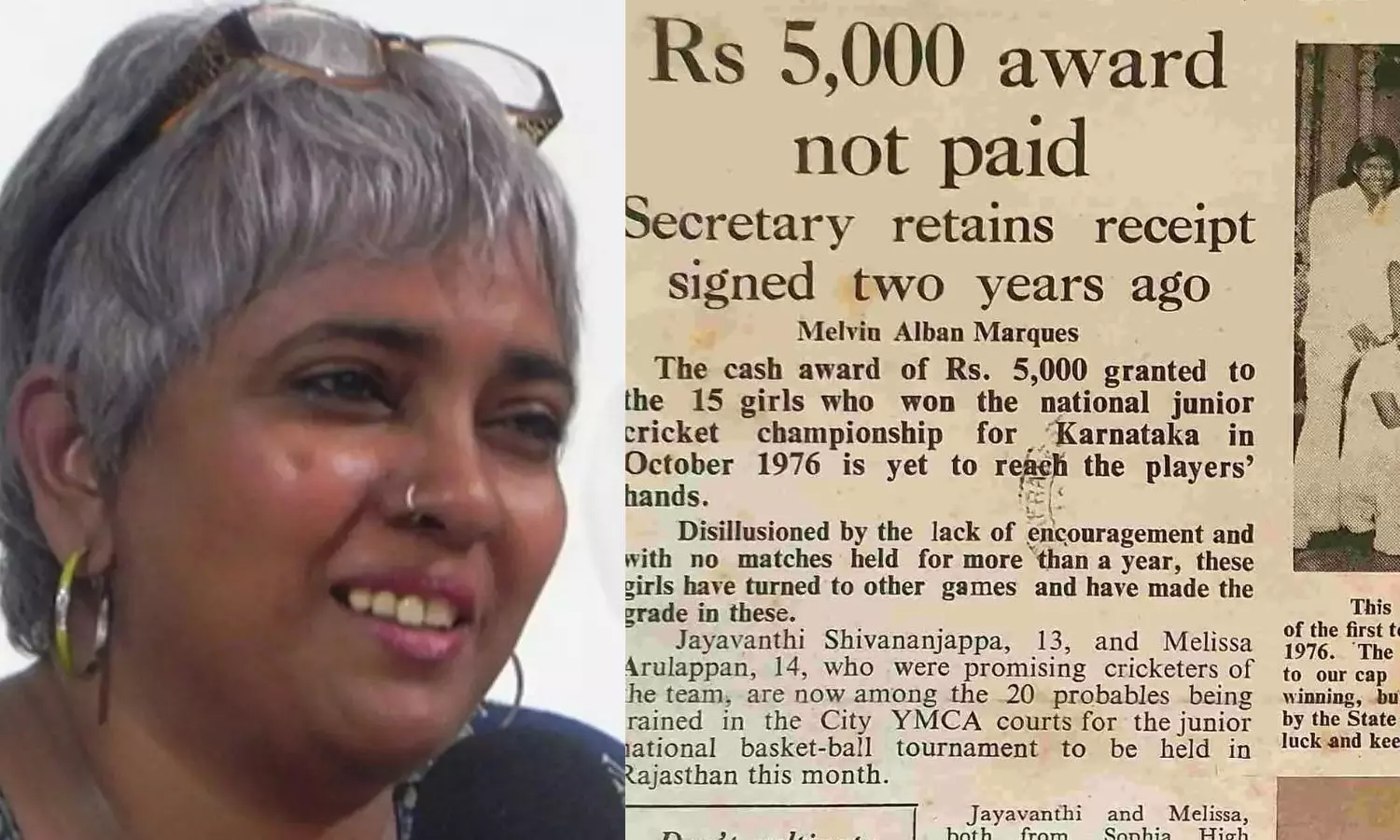Women's Cricket
How a Karnataka cricketer riled up state politics and lost her career to the system over Rs 333
When it comes to the disappointing side of Indian cricket, there is little that Melissa Arulappan has not experienced. The woman whose career ended at 16 tells it all to The Bridge.

If there is anyone who has seen the worst of Indian cricket, it's Melissa Arulappan. The name rings no bells to any reader now but Arulappan – a player of the 1976 National Junior Girls winning Karnataka team – weathered the system, merely mentioned her due, and was therefore discarded.
Now, when talk on blurry regulations, murky politics and tremendous slights to players rule Indian cricket, the former cricketer reveals to The Bridge a story that foretells all of this, with a dollop of misogyny, and more.
"A lot has changed in cricket since the 1970s but if you compare how much it has for men with how much it has for women, it is laughable," says the 58-year-old.
Arulappan has had many a reason to laugh without mirth.
She was just 12 when underdogs Karnataka defeated favourites Kerala in their home ground to lift the state's first-ever national cricket trophy - the first Women's National Juniors. But what followed was brutal and ended her career in the sport.
The girls got a rousing welcome at home when they returned from Kerala. They were promised a total prize money of Rs 5,000 by the Karnataka government. This meant that each player would get Rs 333.
The amount was a hearty prize for teenagers in 1970. Except that they never received it.
And when this 'scam' was revealed two years afterwards, Arulappan and her teammate Jayavanti were portrayed as the scapegoats.
"I did not even intend to tell anyone about not having received the money. We were talking to a journalist about our achievements in basketball and athletics and he casually slipped in this question. I was 14 then and just blurted it out," Arulappan laughs.
The report on young girl cricketers not receiving their promised prize money took the Karnataka legislative assembly by storm.
For Arulappan, the result was an unforeseen cornering.
"I was not taken seriously after this during training or selections. I left the sport for good," she states.
That she had promise in the field that remains forever unfulfilled is clear from the fact that she played basketball and dabbled in athletics for a while afterwards. Eventually, she moved to the corporate world.
This, she says, was because things were largely the same no matter which sport she attempted.
"You had to be self-driven if you were into track and field. There was virtually no scope of being funded or helped. Basketball was a bit different. The federations and government did help out in travel and accommodations, but those were very minimal too," she explains.
There are no regrets, says Arulappan, mainly because little can convince her that women's cricket has been encouraged to fulfill its potential in India.
The sport's governing body in India, BCCI, continues to maintain that India does not have the talent pool to start a full-fledged women's IPL despite the national team finishing as runners up in the last two ICC tournaments.
The wage-gap between men's and women's cricketers too continues to show a massive disparity with the highest paid centrally contracted women earning half the amount earned by the lowest paid men.
Arulappan points out that despite all these years, players in the Indian cricketing ecosystem can still not speak out against administrators or any big names. She does not name names but mentions that speaking out even now "can cost a player his or her career."
"I really do not think the players have the liberty to speak out to the media even after these many years. The administrators command a lot of power in how the sport functions and if any player does not toe the line, they will face the consequences," she says.
